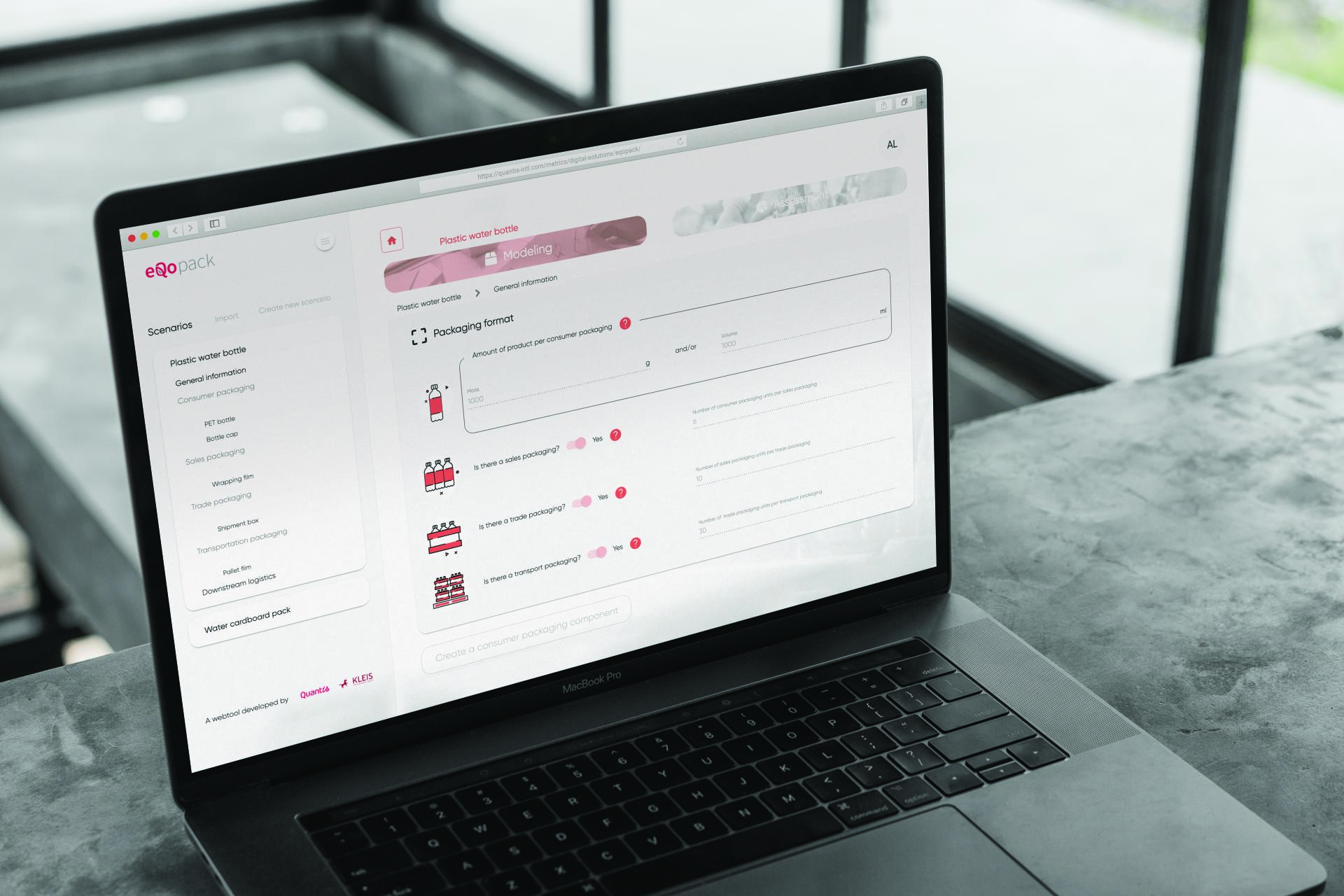eQopack FAQ
General
> What is eQopack?
> Who is eQopack for?
> What can I use this tool for?
> How does it work?
Data and metrics
> What data sources does eQopack use?
> What do I do if the data I need is not included in eQopack?
> How is recyclability handled in eQopack?
> Can I use the results of eQopack to make sustainability claims?
Don’t see your question here? Let’s talk!
GENERAL
What is eQopack?
Sustainability is a competitive factor in many industries, and expectations from stakeholders are growing. Embedding eco-design within the packaging development process is key to scaling the development of sustainable packaging.
eQopack is a tool that helps companies embed ecodesign into the packaging development process and allows them to deploy data-driven packaging choices at scale. This intuitive tool makes robust environmental data accessible to packaging designers, empowering them to develop sustainable packaging.
Who is eQopack for?
eQopack was designed with packaging engineers at FMCG companies in mind to make more sustainable decisions that help reduce the impact of packaging. If your company is interested in improving the environmental performance of its packaging, you may be interested in using the tool to measure environmental footprint and simulate different packaging scenarios to drive improvement.
What can I use this tool for?
With eQopack, packaging engineers can easily measure the environmental footprint of packaging. This ecodesign platform is developed by experts at Quantis and based on robust data and a science-driven methodology.
The scope of the tool is packaging environmental assessment and Quantis aims to develop a module allowing to export results in a batch, so results can be coupled with Business Intelligence data to better manage reporting, track KPIs (e.g. target achievement).
How does it work?
eQopack assesses a pack’s performance across each life cycle stage (from raw materials to end-of-life) with robust metrics, including 17 LCA-based impact categories (carbon footprint, land use, resource depletion, aggregated single score and more) and 8 circularity indicators (reusability, recycled content, pack to product weight ratio and more) to help companies or packaging engineers to easily compare different packaging alternatives.
DATA AND METRICS
What data sources does eQopack use?
- Life Cycle Inventory data (LCI) data are from Ecoinvent, which is updated annually.
- End of life data are from the PEF, Eurostat and UNStat.
- Additional datasets built by Quantis or others.
What do I do if the data I need is not included in eQopack?
It is possible to integrate data into eQopack specifically for your company.
As part of the annual subscription to eQopack, companies can choose the most relevant data for their unique situation from what is available in the database. The database will continuously be updated with additional datasets that all member companies will access and benefit from. However, suppose you wish to integrate specific data that is not already available in the database. In that case, we can develop these datasets as part of a project extension and make those available for your company.
How is recyclability handled in eQopack?
In the current version of eQopack, recyclability is managed as follows:
- The user has to specify whether each material is recyclable or not
- If a material is defined as recyclable, the tool provides a default recycling rate (material country specific)
- The user can edit this default value, to build a specific scenario, run a sensitivity analysis, etc.
- The tool calculates the share of recyclable content and determines whether the packaging is considered recyclable or not (i.e. if > 95 wt% is recyclable, according to the EMF definition)
Can I use the results of eQopack to make sustainability claims?
The aim of eQopack is to support internal decision-making. We recommend taking caution when using results to make sustainability claims. Quantis’ Communications and Engagement Solutions team can support you in making credible claims and ensuring no greenwashing.
The ISO 14’040 standard states “In order to limit possible misunderstandings or negative effects on external interested parties, a committee of interested parties should carry out critical reviews of LCA when the results are intended to be used in support of a comparative statement intended for public disclosure.“

